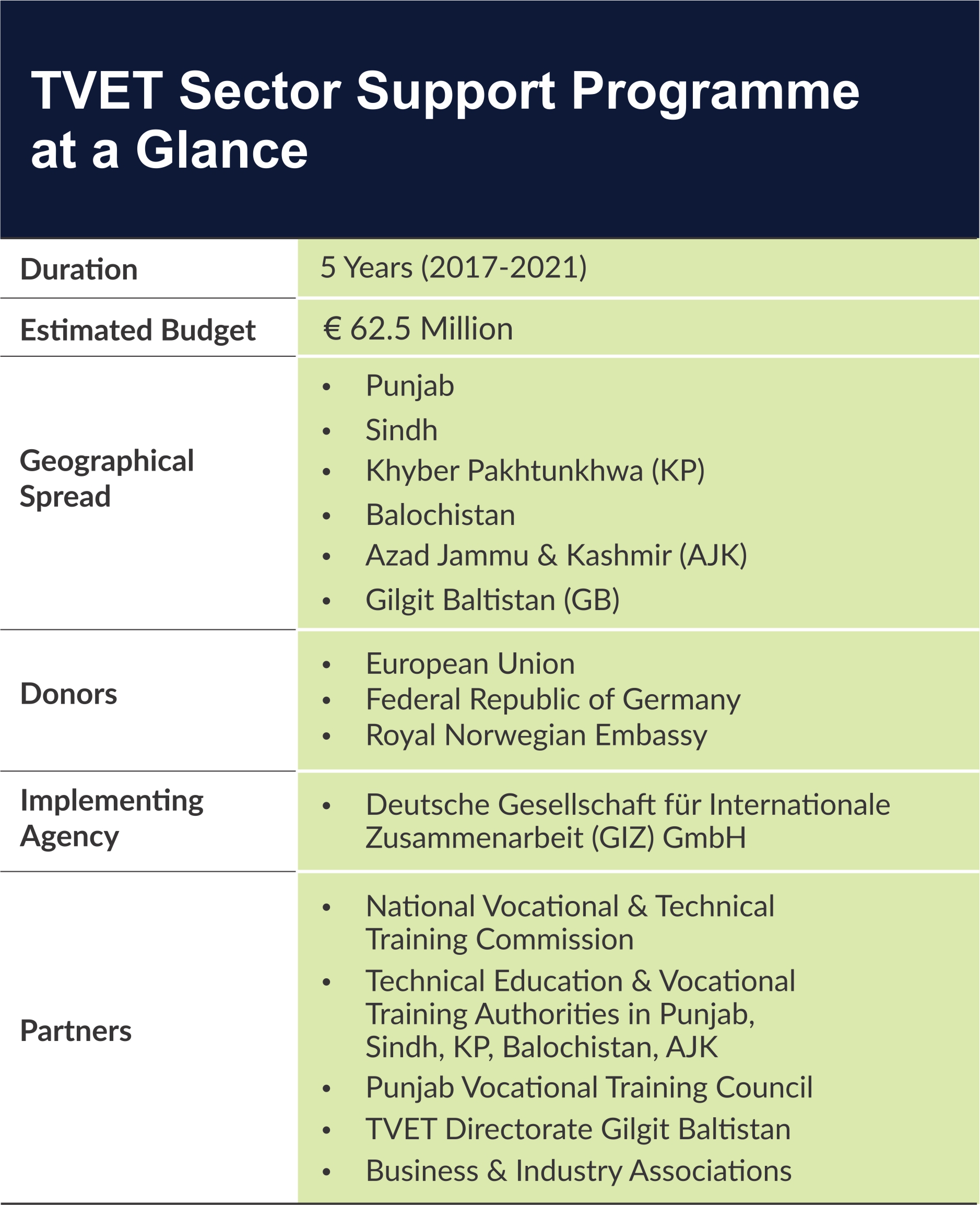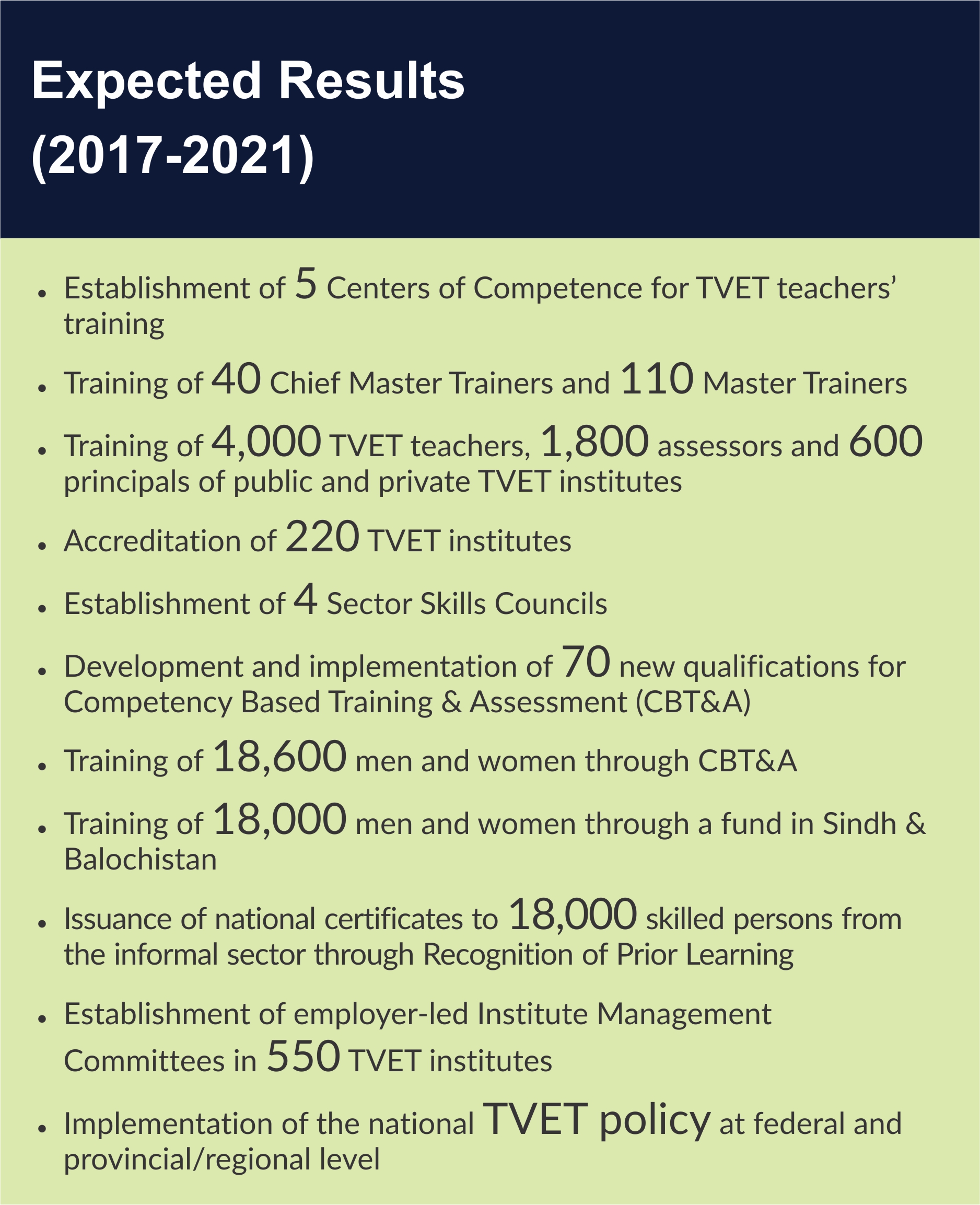Objective
To improve governance and private sector participation in the TVET sector in order to enhance access to quality skills development that meets the demands of the labour market
Introduction
Pakistan’s technical and vocational education and training (TVET) system is confronted with numerous challenges in the area of access, quality, equity and relevance. Annually 2.4million young people enter the job market, but as of 2015 there are only 476,850 places available in formal TVET through 3,581 institutes across the country. Apart from this mismatch between demand and supply even quality and relevance of the training delivered is not according to the demands of the job market while there is limited cooperation between the public and private sector as far as TVET governance and delivery is concerned. To improve access, quality, equity and relevance of TVET, the Government of Pakistan has embarked upon a comprehensive reform in 2011 with the support of the European Union and the governments of the Germany, Netherlands and Norway. The first phase of the reform, which is based on the National Skills Strategy (NSS), has ended in December 2016. During this period a number of milestones have been achieved such as national TVET policy, National Vocational Qualifications Framework (NVQF) and Competency Based Training & Assessment (CBT&A) etc. The second phase of the TVET Sector Support Programme has been started from January 2017 for another five years. The Programme is supported by the European Union, the Federal Republic of Germany and the Royal Norwegian Embassy.
Implementation
TVET Sector Support Programme is being implemented through following intervention areas;
Policy & Governance
- Implementation of the national TVET policy at federal and
provincial/regional level - Agreements of cooperation between public and private sector
- Quality assurance & management
- Accreditation of TVET institutes
Private Sector Engagement
- Increasing private sector’s participation in TVET related decision making bodies at federal and provincial/regional levels
- Establishment of Sector Skills Councils
- Strengthening of employer-led Institute Management
Committees - Promoting systematic dialogue between public and private sector
Implementation of reformed TVET
- Provision of demand-oriented vocational training to youth in
Sindh and Balochistan through a special training fund - Promotion of on-the-job or work based vocational training
- Facilitation of agreements between training providers and
enterprises for training delivery
Human Resource Development/ Teacher Training
- Implementation of NVQF
- Development and implementation of new demand-driven
national qualifications through CBT & A - Setting up Centers of Competence for teachers’ training
- Training of teachers, assessors and principals of public and
private TVET institutes
 Pakistan TVET REFORM Support Programme Technical and Vocational Education and Training (TVET) Reform support Programme
Pakistan TVET REFORM Support Programme Technical and Vocational Education and Training (TVET) Reform support Programme







